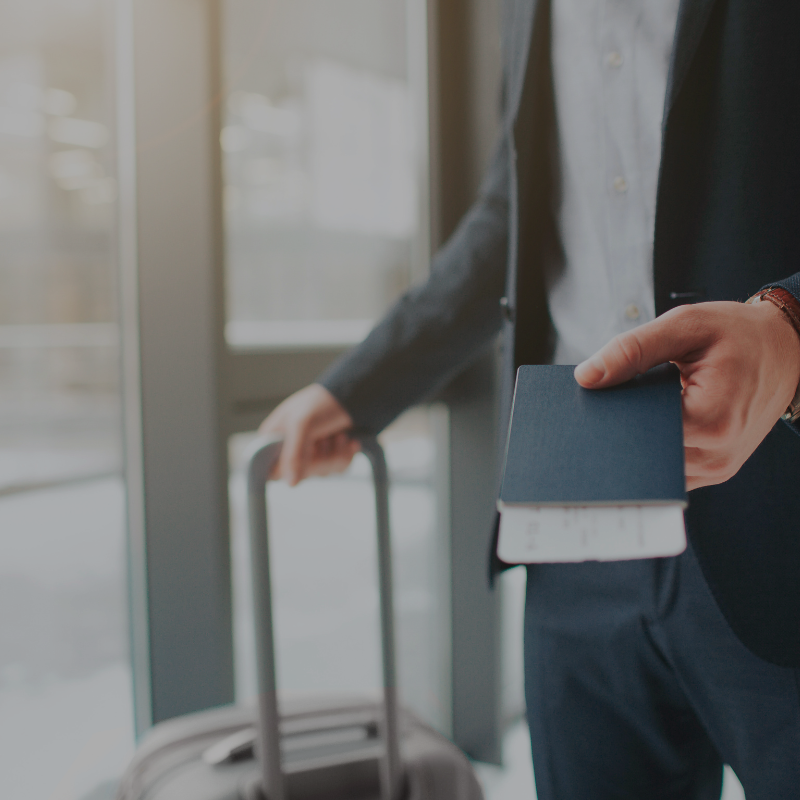A calling visa is a unique travel document issued by a country to people of another nation deemed to have a certain level of vulnerability. Individuals from these countries must apply for this visa before entering the host country.
In Indonesia, calling visas are issued explicitly to nationals from countries facing unstable political and security conditions, high crime rates, frequent cases of visa abuse, or uncontrolled disease spread.
Understanding the calling visa in Indonesia
A calling visa in Indonesia serves as an entry permit for nationals from specific countries, allowing a short stay of usually 30 days.
During this period, individuals must apply for a regular visa at the Indonesian immigration office.
The regulation governing this visa is stipulated in Article 1 (35) of Regulation of Ministry of Law and Human Rights Number 22, 2023, concerning Visa and Stay Permit.
Essential Points Regarding Calling Visas in Indonesia:
- Issuance Points: Typically, calling visas are granted at airports and seaports in Indonesia, emphasizing accessibility and efficiency.
- Work Limitations: Visa holders are only permitted to work or engage in activities within Indonesia if they possess a valid work permit.
- Consequences of Overstaying: Overstaying is a severe offense and can lead to fines, imprisonment, or deportation, underlining the importance of compliance with visa regulations.
Why are calling visas issued?

Several factors contribute to a country being included in Indonesia’s calling visa country list.
These factors include unstable political and security conditions, high crime rates, frequent cases of visa abuse, and uncontrolled disease spread.
1. Unstable political and security conditions
Countries experiencing political turmoil or security threats are more likely to be on the calling visa list, as their nationals may seek refuge due to conflict or persecution.
2. High crime rates
Nations with high crime rates may find their citizens attempting to avoid legal consequences by overstaying in Indonesia.
3. Frequent cases of visa abuse
Countries with a history of visa abuse, where nationals exploit visas for illegal activities, are more likely to be included in the calling visa country list.
4. Uncontrolled cases of disease spread
Nations grappling with rampant disease spread may be included in the calling visa country list to mitigate potential health risks to Indonesia’s public.
Calling visa country list for Indonesia
The Indonesian government officially removed Cameroon from the calling visa list. This decision is supported by the Minister of Law and Human Rights (Kepmenkumham) Decree Number M.HH-05.GR.01.06 of 2023, issued on November 23, 2023.
The current countries included in the calling visa list for Indonesia are:
- Afghanistan
- Guinea
- Israel
- DPR Korea
- Liberia
- Nigeria
- Somalia
Types of calling visas in Indonesia
Indonesia offers two primary types within the calling visa category: the Visitor Visa and the Limited Stay Visa. The Visitor Visa is divided into Single Journey Visitor Visa and Multiple Journey Visitor Visa.
1. Single journey visitor visa
This type of visa is granted for various purposes, including tourism, family visits, social activities, arts and culture, government duties, non-commercial sports, study tours, short courses, business discussions, and more.
2. Multiple journey visitor visa
This type of visa is granted for family visits, social activities, arts and culture, government duties, business discussions, attending seminars, participating in international exhibitions, and more.
Read more: Visa for Diaspora Indonesia: Everything you need to know
Application process for a calling visa in Indonesia
To apply for an Indonesian calling visa, individuals must follow a comprehensive process involving document submission, application fee payment, and additional requirements specific to the type of visa pursued.
1. Document submission
Submit the following documents to your country’s Indonesian embassy or consulate:
- Valid passport
- Completed application form
- Recent photograph
- Proof of financial support
- Round-trip ticket
2. Application fee
Pay the required visa application fee.
3. Additional requirements
Additional requirements for calling visa applications will be provided directly by the Representative of the Republic of Indonesia and may include:
- Letter of guarantee from the Guarantor
- Recommendation from the Strategic Intelligence Agency (BAIS) of the Indonesian National Armed Forces (TNI) for activities in conflict areas that pose a threat to the presence and security of Calling Visa citizens
- Permanent Resident Card for visa applications submitted outside the home country
4. Multiple journey visitor visa requirements
For Multiple Journey Visitor Visa applicants, it is necessary to have:
- Proof of having visited Indonesian territory at least three times in the last 12 months
- and/or Permanent Resident Card for those residing outside their home country.
Consult your immigration matters with InCorp Indonesia
Calling visas is essential in enabling Indonesia to regulate the inflow of immigrants from specific countries, safeguarding the nation’s security and public health. For citizens of countries on Indonesia’s calling visa list, obtaining this visa is a prerequisite for entry into the country.
Explore our comprehensive visa assistance services, leveraging the extensive experience and network within the InCorp Global Group. Our proven track record includes aiding numerous local and international clients in obtaining visas tailored to their diverse needs.
For a personalized and streamlined visa application process, contact us today by clicking the button below for a free consultation.
Get in touch with us.
What you'll get
A prompt response to your inquiry
Knowledge for doing business from local experts
Ongoing support for your business
Disclaimer
The information is provided by PT. Cekindo Business International (“InCorp Indonesia/ we”) for general purpose only and we make no representations or warranties of any kind.
We do not act as an authorized government or non-government provider for official documents and services, which is issued by the Government of the Republic of Indonesia or its appointed officials. We do not promote any official government document or services of the Government of the Republic of Indonesia, including but not limited to, business identifiers, health and welfare assistance programs and benefits, unclaimed tax rebate, electronic travel visa and authorization, passports in this website.



